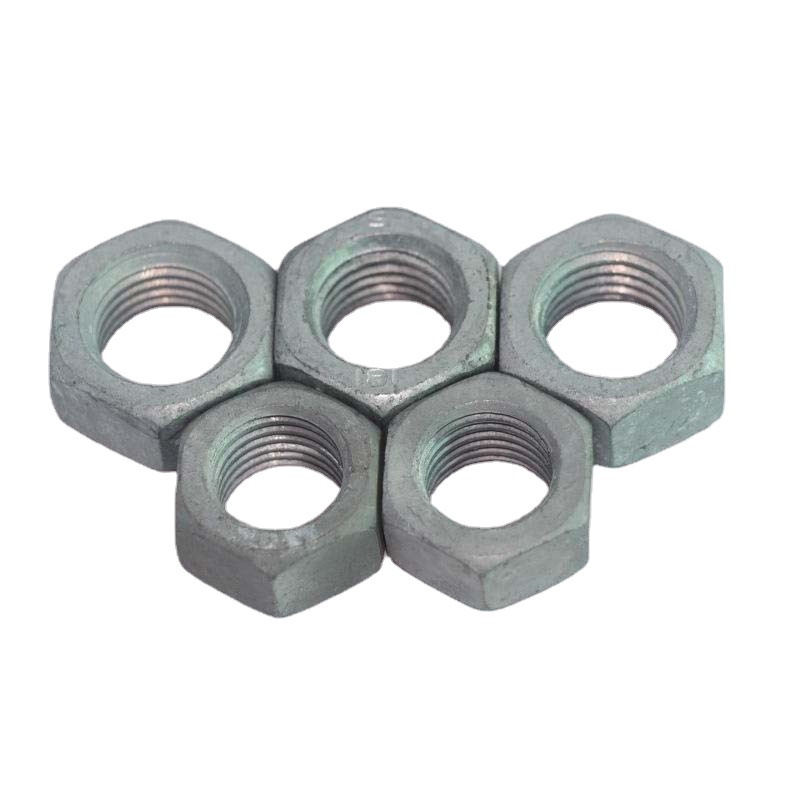

10.9 stud bolts
Nov . 16, 2024 14:03 Back to list
10.9 stud bolts
Understanding 10.9 Stud Bolts Properties, Applications, and Advantages
When it comes to engineering and construction, the choice of fasteners plays a crucial role in ensuring reliability and safety. Among the various types of fasteners available, 10.9 stud bolts stand out due to their exceptional strength and resilience. This article delves into the properties, applications, and advantages of 10.9 stud bolts, providing a comprehensive understanding of their significance in various industries.
Properties of 10.9 Stud Bolts
The designation 10.9 refers to the property class of the bolt. This classification system, used primarily in Europe, reflects the mechanical properties of the bolt. A 10.9 stud bolt is made of medium carbon steel and undergoes a heat treatment process that enhances its strength. Specifically, the first digit (10) denotes the minimum tensile strength, which is approximately 1,000 MPa (megapascals), while the second digit (9) indicates the minimum yield strength of 90% of the tensile strength.
In addition to high tensile and yield strengths, 10.9 stud bolts typically have excellent ductility and toughness. These mechanical properties make them suitable for high-stress applications where conventional bolts might fail. The bolts are also designed with precise tolerances to ensure compatibility with various nuts and components, contributing to overall assembly integrity and reliability.
Applications of 10.9 Stud Bolts
Due to their robust properties, 10.9 stud bolts are used in a wide range of applications. Some of the most common sectors that utilize these fasteners include
1. Automotive Industry 10.9 stud bolts are extensively used in vehicle manufacturing, particularly in engine components and chassis assemblies where strength and durability are paramount.
2. Construction In structural engineering, these bolts are used in the assembly of steel beams, bridges, and other vital structures that must withstand considerable loads and stresses.
3. Oil and Gas The oil and gas sector relies on 10.9 stud bolts for securing pipelines and drilling equipment, which operate under high-pressure conditions. Their resistance to fatigue and failure is critical in these applications.
10.9 stud bolts

4. Heavy Machinery Industrial machinery, such as cranes and excavators, often use 10.9 stud bolts to ensure that components can endure heavy loads and dynamic forces.
5. Aerospace Although more stringent specifications might apply, some aerospace applications utilize 10.9 fasteners for non-critical components where high strength is still a requirement.
Advantages of 10.9 Stud Bolts
1. High Strength-to-Weight Ratio One of the primary advantages of 10.9 stud bolts is their ability to provide exceptional strength while remaining lightweight. This characteristic is particularly beneficial in applications where reducing weight is essential, such as in aviation and automotive industries.
2. Diverse Coating Options 10.9 stud bolts can be manufactured with various coatings, including zinc plating, to enhance their corrosion resistance. This is crucial in environments where exposure to moisture and chemicals is prevalent.
3. Cost-Effective Solution Compared to other high-strength materials, 10.9 stud bolts offer a cost-effective solution without compromising performance. Their widespread availability further adds to their appeal.
4. Ease of Installation The standardized dimensions and threading of 10.9 stud bolts make them easy to install and replace. This standardization minimizes assembly time and reduces the likelihood of errors.
5. Versatile Uses With their robust mechanical properties, 10.9 stud bolts can be employed in various applications, making them a versatile choice for engineers and designers.
Conclusion
In conclusion, 10.9 stud bolts represent a reliable and efficient fastening solution in numerous high-stress applications across multiple industries. Their impressive mechanical properties, coupled with their versatility and cost-effectiveness, make them an essential component in modern engineering and construction. As industries continue to evolve and demand more from their materials, the significance of high-strength fasteners like 10.9 stud bolts will only continue to grow. Understanding their properties and applications is vital for engineers and designers striving to create safe and durable structures and machinery.
Latest news
-
Premium Fasteners Manufacturer | AI-Driven Solutions
NewsAug.01,2025
-
Hot Dip Galvanized Bolts - Hebei Longze | High Strength, Corrosion Resistance
NewsAug.01,2025
-
High-Strength Hot Dip Galvanized Bolts - LongZe | Corrosion Resistance, Custom Sizes
NewsAug.01,2025
-
Best Self Tapping Screws for Drywall - Fast & Secure Installation
NewsJul.31,2025
-
High-Strength Hot Dip Galvanized Bolts-Hebei Longze|Corrosion Resistance&Customization
NewsJul.31,2025
-
Hot Dip Galvanized Bolts-Hebei Longze Metal Products|Corrosion Resistance&High Strength
NewsJul.31,2025

